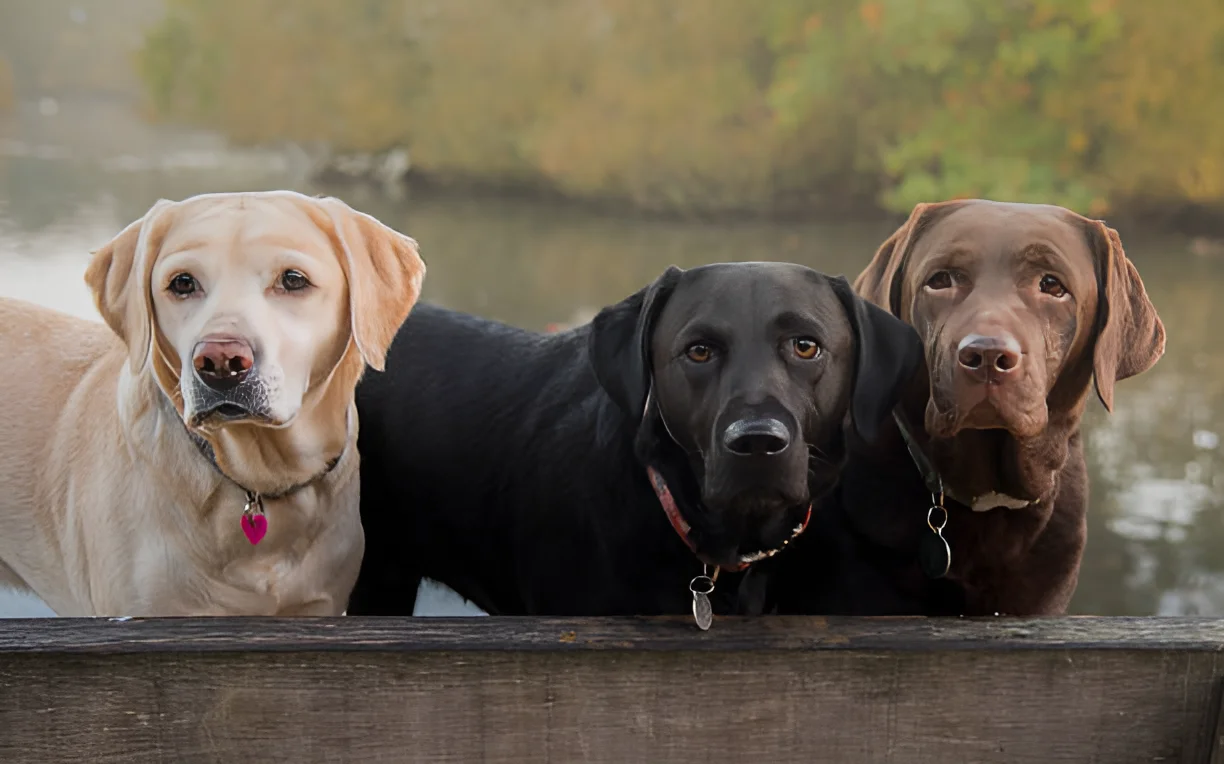Yes, Labs can be loyal to one person, but they are also known for forming strong bonds with multiple family members. Their friendly and affectionate nature makes them capable of spreading their loyalty and love across the entire household.
Labrador Retrievers, commonly known as Labs, are one of the most popular dog breeds in the United States. Renowned for their friendly demeanor, intelligence, and versatility, Labs are often chosen as family pets, service dogs, and working dogs. A common question among potential Lab owners is whether these dogs are loyal to one person or if they spread their affection equally among all family members. This comprehensive guide will explore the loyalty of Labs, factors influencing their bonding, and tips for fostering a strong relationship with your Lab.
Understanding Labrador Loyalty
Breed Characteristics
Labrador Retrievers are known for their gentle, outgoing, and eager-to-please nature. These traits make them highly adaptable and capable of forming strong bonds with humans. Labs are often described as “people-oriented” dogs, meaning they thrive on human interaction and companionship.
Bonding with Family Members
Labs are more than capable of forming deep, loving bonds with every member of the family. While they may show a slight preference for one person, often the primary caregiver, they generally distribute their affection and loyalty among all household members. This makes them excellent family pets, as they can connect with adults, children, and even other pets.
Factors Influencing Loyalty
Primary Caregiver
The person who spends the most time caring for the Lab, providing food, exercise, and training, is likely to become the dog’s favorite person. This is because Labs, like many dogs, tend to bond more closely with those who meet their needs and provide consistent care.
Quality Time and Interaction
Spending quality time with your Lab, engaging in activities such as play, training, and cuddling, can strengthen your bond. Labs are social animals that enjoy being involved in family activities. The more positive interactions they have with different family members, the more likely they are to spread their loyalty.
Training and Socialization
Proper training and socialization play a crucial role in shaping a Lab’s behavior and loyalty. Early socialization helps Labs become well-adjusted and confident, reducing the likelihood of them becoming overly attached to one person. Training sessions that involve multiple family members can also help distribute the dog’s loyalty more evenly.
Building a Strong Bond with Your Lab
Consistent Care
Providing consistent care is essential for building a strong bond with your Lab. This includes feeding them at regular times, ensuring they get enough exercise, and maintaining a routine. Consistency helps Labs feel secure and reinforces their trust in you.
Positive Reinforcement
Using positive reinforcement techniques, such as treats, praise, and play, can strengthen your relationship with your Lab. Rewarding good behavior and providing positive experiences helps build trust and loyalty.
Engaging Activities
Engage your Lab in activities that stimulate their mind and body. Labs are intelligent and energetic dogs that require mental and physical stimulation. Activities such as fetch, agility training, and puzzle toys can keep them engaged and happy.
Common Myths About Lab Loyalty
Myth: Labs Only Bond with One Person
While Labs may show a preference for one person, they are capable of forming strong bonds with multiple family members. Their friendly and social nature allows them to connect with everyone in the household.
Myth: Labs Are Not Protective
Labs are known for their friendly demeanor, but they can also be protective of their family. While they may not be as aggressive as some other breeds, their loyalty and attachment to their family can make them effective watchdogs.
Health and Well-Being
Regular Veterinary Care
Maintaining your Lab’s health is crucial for their overall well-being and loyalty. Regular veterinary check-ups, vaccinations, and preventive care can help keep your Lab healthy and happy. A healthy dog is more likely to be active, engaged, and loyal.
Balanced Diet
Providing a balanced diet that meets your Lab’s nutritional needs is essential for their health and energy levels. High-quality dog food, appropriate portion sizes, and regular feeding times contribute to their well-being.
Conclusion
Labrador Retrievers are known for their loyalty and affectionate nature. While they may show a slight preference for one person, they are more than capable of forming strong bonds with multiple family members. By providing consistent care, engaging in positive interactions, and ensuring their health and well-being, you can foster a deep and lasting bond with your Lab. Understanding and meeting their needs will help ensure that your Lab remains a loyal and loving companion for years to come.
The photo featured below the post headline is Credit: lizcen/istockphoto
I hope you find this post helpful and informative. If Yes’ feel free to share it with your friends!
Frequently Asked Questions
Are Labs loyal to one person or the whole family?
Labs can be loyal to one person, often the primary caregiver, but they are also known for forming strong bonds with multiple family members.
How can I strengthen my bond with my Lab?
Spend quality time with your Lab, engage in activities they enjoy, use positive reinforcement, and provide consistent care to strengthen your bond.
Do Labs get along with children and other pets?
Yes, Labs are known for their friendly and gentle nature, making them excellent companions for children and other pets.
Can Labs be protective of their family?
While Labs are generally friendly, they can be protective of their family due to their loyalty and attachment.
What should I feed my Lab to keep them healthy?
Provide a balanced diet with high-quality dog food, appropriate portion sizes, and regular feeding times to meet your Lab’s nutritional needs.

